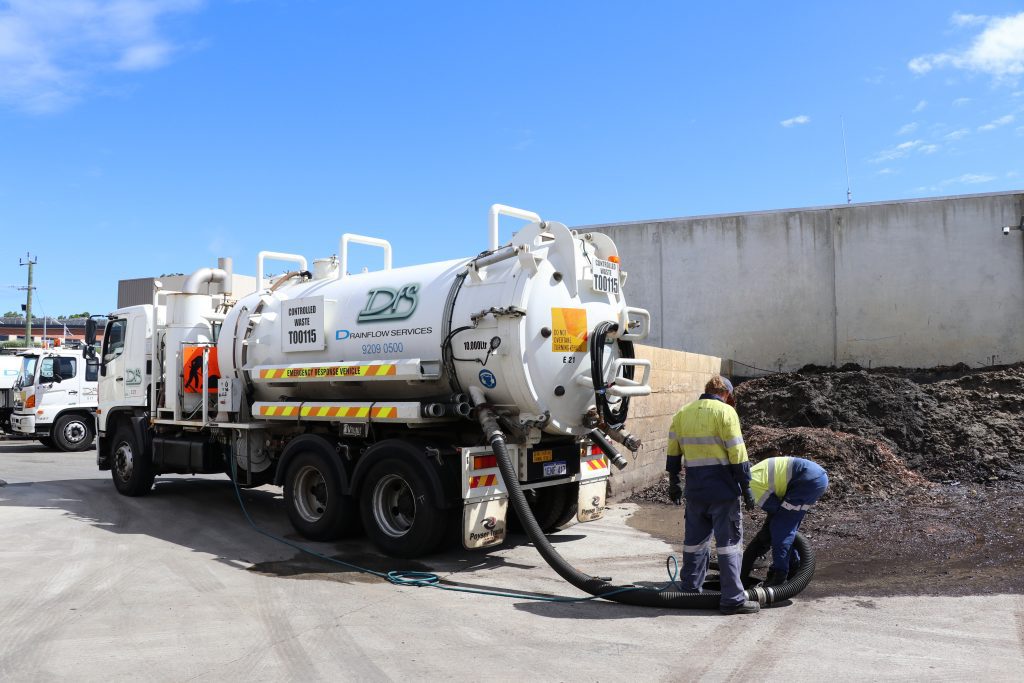Not known Details About Reclaim Waste
Not known Details About Reclaim Waste
Blog Article
Reclaim Waste for Dummies
Table of ContentsIndicators on Reclaim Waste You Need To KnowThe Only Guide to Reclaim WasteReclaim Waste Things To Know Before You Buy9 Simple Techniques For Reclaim WasteReclaim Waste Can Be Fun For Anyone
Explore the kinds, events, and types of liquid waste. Residential sewer waste refers to the waste and items from a household septic tank. This kind of waste is developed by people in homes, institutions, and various other buildings. This only includes septic systems that have a drain area. The proper management and disposal of residential sewer waste require fluid waste to be transferred to a sewage treatment plant where the proper methods and devices are put on detoxify and deal with waste.
Industrial waste frequently includes prospective hazards, such as combustible materials or a combination of fluid and strong waste items, and calls for an extra advanced and comprehensive disposal process. The disposal of business waste generally includes the filtering of waste before transportation to make certain safe and proper disposal. Hazardous waste is developed from byproducts and overflow of industrial procedures and manufacturing.
This sort of waste can not make use of the very same sewage management transport or procedures as septic or commercial fluids. The hazardous waste management process requires the evaluation and testing of liquid waste prior to it undertakes the disposal process (liquid waste disposal melbourne). Runoff waste is the liquid waste that comes from runoff and excess stormwater in extremely booming locations or cities
Drainage waste can create contamination and flooding otherwise dealt with effectively. Find out more about drain cleaning and waste management. Making certain appropriate waste administration can avoid catastrophes and reduce environmental injury. Both individuals in household settings and experts in commercial or manufacturing industries can profit from understanding the procedures and policies of liquid waste management.
The Main Principles Of Reclaim Waste
Contact PROS Services today to learn more about our waste administration and disposal solutions and the proper ways to care for the liquid waste you generate.
(https://slides.com/reclaimwaste1)Do you recognize what happens to your water when you pull the plug, flush the commode or drain the washing maker? No? Well, it's worth knowing. This so-called 'wastewater' is not just a vital source yet, after therapy, will certainly be launched to our land, waterways or the ocean. Used water from toilets, showers, baths, kitchen area sinks, laundries and industrial processes is known as wastewater.

water used to cool down equipment or tidy plant and equipment). Stormwater, a form of wastewater, is overflow that moves from agricultural and metropolitan locations such as roofs, parks, yards, roads, paths and gutters right into stormwater drains pipes, after rain. Stormwater moves neglected straight to local creeks or rivers, eventually getting to the ocean.
Reclaim Waste for Dummies
In Queensland, most wastewater is treated at sewage therapy plants. Wastewater is delivered from residential or commercial websites through a system of drains and pump stations, called sewage reticulation, to a sewage treatment plant. Neighborhood governments build, maintain and operate most sewer therapy plants. Operators are licensed under the Environmental Security Act 1994 to discharge cured wastewater at useful link an appropriate ecological requirement into waterways.
The Division of Natural Resources encourages city governments regarding handling, operating and maintaining sewage systems and treatment plants. In unsewered locations, neighborhood governments might call for homeowners to mount private or family sewage therapy systems to deal with domestic wastewater from commodes, cooking areas, shower rooms and washings. The Division of Natural Resources authorizes using household systems when they are proven to be reliable.
In some brand-new subdivisions, therapy of some stormwater to eliminate trash, sand and crushed rock has started utilizing gross pollutant catches. Wastewater therapy takes place in 4 stages: Gets rid of solid issue.
Wastewater after that moves right into big containers where solids settle and are gotten rid of as sludge. Oil and residue are skimmed from the surface area. Uses small living microorganisms knows as micro-organisms to break down and get rid of remaining liquified wastes and great fragments. Micro-organisms and wastes are incorporated in the sludge. Eliminates nitrogen and phosphorus nutrients that can cause algal blooms in our rivers and intimidate aquatic life.
Reclaim Waste Things To Know Before You Get This
Nutrient removal is not available at all sewage therapy plants due to the fact that it calls for costly specialist equipment. Clear fluid effluent generated after therapy might still have disease-causing micro-organisms - liquid waste disposal melbourne.

The majority of wastewater streams right into the sewerage system. Under the Act, neighborhood governments carry out approvals and permits for environmentally appropriate activities (ERAs) including wastewater launches that may have a local effect.
The 9-Second Trick For Reclaim Waste
Tracking provides accurate information about water top quality and can validate that permit conditions are being fulfilled. The information gotten through surveillance gives the basis for making water quality choices.
Report this page